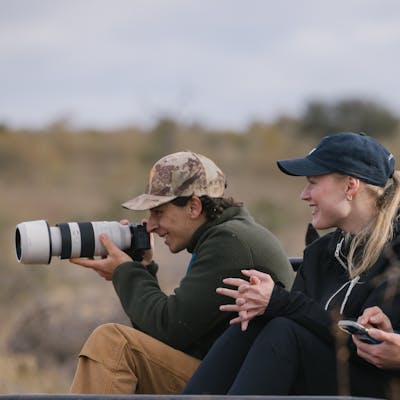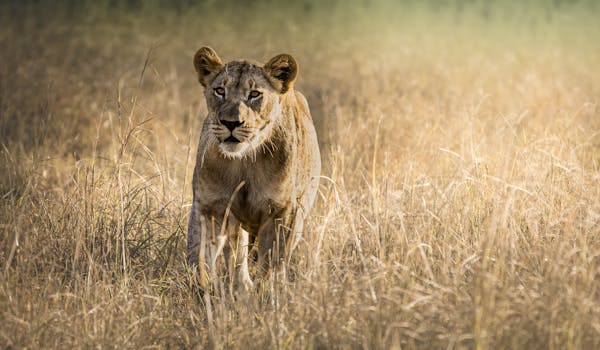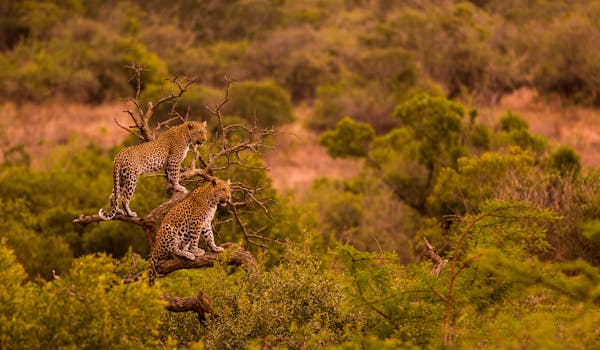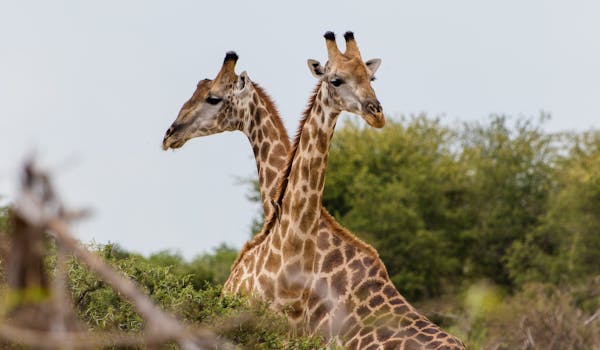Make it yours
Every experience is customised to be just right for you.
WILDLIFE VOLUNTEERING: THE RED FLAGS MOST PEOPLE MISS
Learn more
Be part of a giant conservation story.
When you volunteer with elephants in Africa with African Conservation Experience, you join conservationists working to understand and protect these remarkable animals. Watching an elephant strip bark from a tree with extraordinary strength, then seeing a herd gently guide a newborn calf, reveals just how intelligent and complex these giants truly are.
Our elephant volunteer experiences give you the chance to learn about elephant behaviour, ecology and the threats facing Africa’s elephants - from habitat loss to human–wildlife conflict - while supporting ethical conservation work that contributes to their long-term survival.


Explore how to volunteer with elephants in Africa.

Go behind the scenes on a Big 5 reserve and join one of the biggest conservation success stories
View details for Phinda Wildlife Research Project
Go off the beaten track in a remote bush camp, and monitor lions, elephants and raptors
View details for Umsele Field Conservation Project - In Partnership With Balule & EWT
Explore a variety of animals in the Okavango Delta, home to the largest elephant population on Earth
View details for Okavango Wilderness Project
Visit three different projects in two countries to truly understand wildlife conservation in Africa
View details for From Famous Kruger To Remote OkavangoClick the button to access your free guide. We've also sent it to your email.
Inside: the 8 red flags that reveal exploitation, the 10 green flags that prove genuine conservation, and the questions to ask before you book.
Download now
Monitoring Elephants at the Vikela Kruger Conservation Experience
For centuries, African elephants have been hunted for their ivory tusks, which are used to make piano keys, souvenirs and symbols of wealth.
Throughout the twentieth century, the ivory trade grew at an alarming rate and threatened to wipe out the African elephant population altogether. Thankfully, in 1989, African elephant conservation projects scored a huge win as the international ivory ban was passed. The ban closed all trade of new elephant ivory. As a consequence, illegal poaching also diminished as ivory stopped being such a saleable commodity. However, in several countries across the world, exemptions can be made so that certain ivory, for example artefacts and musical instruments containing ivory, can still be legally traded.
But after the ban on ivory trade, several African nations, including Botswana, Namibia and Zimbabwe faced challenges. Having successfully implemented elephant conservation programs in the past, they began to experience population surges which led to challenges in managing elephant herds.
In 1997, just eight years after the initial ban, the Convention on International Trade in Endangered Species (CITES) made a one-off exemption that permitted Botswana, Namibia and Zimbabwe to sell their stockpile of ivory to Japan. The sale took place in 1999. In 2008, CITES made a second one-off exemption for the same countries, plus South Africa, to legally sell their stockpile ivory to Japan and China in another one-time sale.
Quotas for these one-off African elephant tusk sales were decided after consultative meetings between governments and CITES. Nevertheless, some conservationists argue that these exemptions also drove increases in illegal ivory poaching.
In the last 10 years, the consensus is that around 50 elephants are killed per day in Africa for their ivory. The more people who support elephant conservation initiatives, the more hope there is for Africa’s remaining elephants.
As part of our elephant volunteer programs, you'll support conservationists on the ground through data collection, behavioural observation, and ecosystem monitoring. From observing herd dynamics, mapping their locations and surveying vegetation, your work will help build a deeper understanding of how elephants shape and sustain their environment.
Most herds are led by one of the older females, called a matriarch, and young females will stay with the herd throughout their lives. Males, on the other hand, tend to leave the herd around adolescence and live a more solitary adult life.
Hence the saying "an elephant never forgets". Researchers who work with elephants in Africa have shown they can remember places where their herd found food and water, even many years later. They also remember traumatic experiences and change their behaviour and movements to avoid similar situations.
Female elephants reach sexual maturity between nine and 12 years old, but it can be as young as seven, depending on the abundance of food and water. They normally have their first baby between 12 and 14 years of age, and can continue having calves up to 50 years old.
The African savanna elephant is the world’s largest land animal, growing up to four metres tall and weighing as much as 6,000kg. The African forest elephant, meanwhile, is smaller and only lives in West and Central Africa. On our elephant volunteer programs, you’ll focus entirely on the larger African savanna elephant.
Growing up to two metres in length, it is the longest animal snout in the world. Elephants famously use their trunks as hoses to cool themselves down and can suck and hold up to 8 litres of water at a time before spraying.
They can breathe through it like a snorkel when swimming across deep water, sense vibrations from far-away herds through the ground, sniff out water from kilometres away, and reach leaves on branches up to six metres off the ground. Working with elephants in Africa, you’ll also discover their trunk has incredible fine motor control and can skilfully handle objects as small as a single blade of grass.
But the most instantly recognisable variation is the shape and size of their ears. The African elephant’s ears are larger and resemble a map of Africa.
Whereas the Asian elephant has a single tip at the end of their trunk, the African elephant has two, which it uses to pick up and manipulate objects.
A fully grown savanna elephant can consume around 140kg (300lbs) of food a day. To put that in context, chances are you eat about 1.5kg (3.3lbs) per day. At that rate, it would take you three months to get through an African elephant’s daily diet! As herbivores, elephants only eat plants, which is why farmers often take extreme measures to keep elephants away from their crops.
Researchers who work with elephants in Africa estimate there are now close to 400,000 African elephants remaining. In the early twentieth century, their numbers were in the millions. This marks a worryingly steep decline in the population of African elephants.
African savanna elephants once covered almost the entire continent but now the vast majority of savanna elephants are found in east and southern Africa. The largest populations are located in Tanzania and especially Botswana. However, South Africa, Namibia, Zimbabwe, Kenya, Zambia and some other countries are also home to significant elephant populations.
Where possible, elephants should be left in the wild. If at a specialist elephant sanctuary, human interaction should be minimal.
All of our partner animal rehabilitation centres strictly adhere to the animal welfare guidelines set by SATSA and ABTA. Additionally, we only partner with wildlife research projects in Africa that either maintain near self-sustaining animal populations or operate under a model we call "stewarded", where minimal human support helps ensure long-term viability. This commitment guarantees that animals live as naturally as possible while upholding the highest standards of care, conservation value, and ethical treatment.
For information on the topic of ethical elephant volunteering in Africa, please refer to our Animal Welfare page.
We specialise in volunteering in southern Africa. Elephant volunteer opportunities are available in South Africa and Botswana. Our volunteer abroad elephant projects give you the chance to make an impact in wild habitats.
Take the first step on your giant adventure by simply submitting an enquiry form. We offer opportunities to volunteer with elephants for all experience levels and interests. You can find out more about how we take time to create a customised African Conservation Experience that’s just right for you here.
We can't wait to speak with you about the opportunities to volunteer with elephants in Africa!


